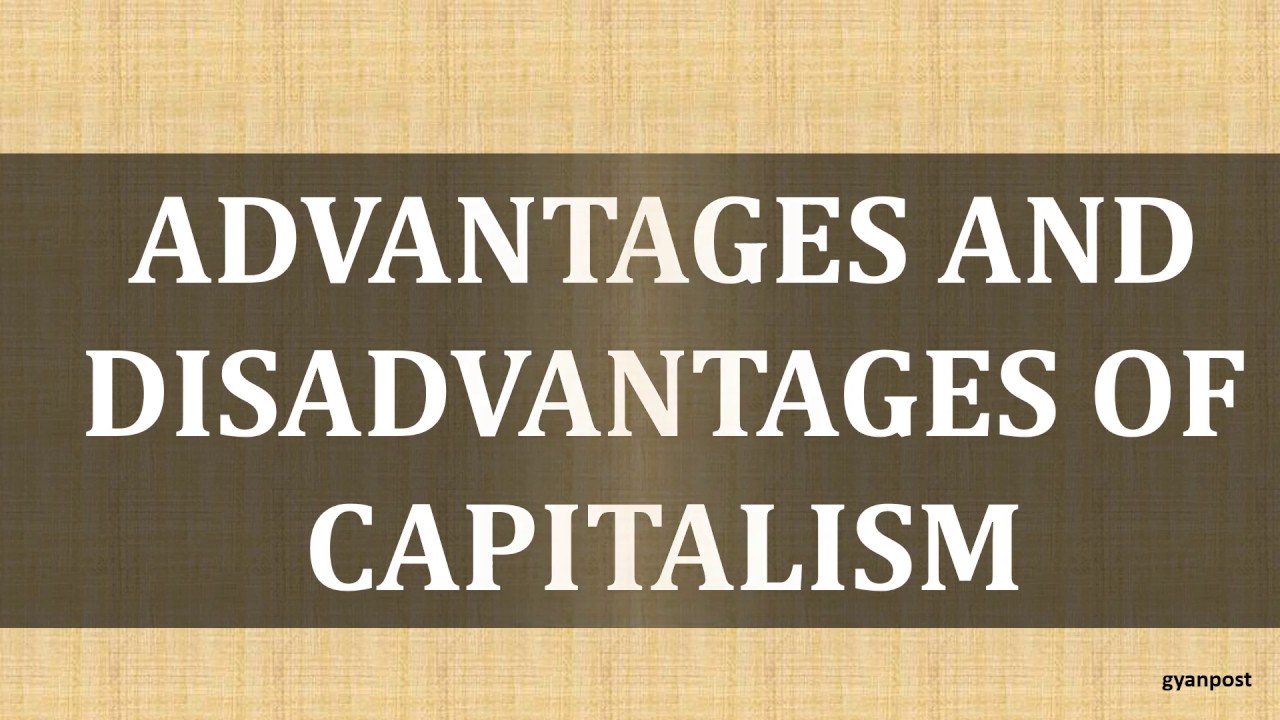The Benefits of Capitalism
In this article, we will explore the numerous benefits of capitalism and how it has positively impacted societies around the world. Capitalism, as an economic system, has proven to be highly efficient and effective in promoting growth, innovation, and individual freedom. By understanding the advantages of capitalism, we can appreciate its role in shaping modern economies and societies.
Economic Growth and Innovation
Capitalism fosters economic growth by encouraging competition and entrepreneurship. In a capitalist system, individuals and businesses are motivated to innovate and improve their products or services to attract customers. This drive for innovation leads to technological advancements, increased productivity, and overall economic development.
Moreover, capitalism promotes the efficient allocation of resources. Through the price mechanism, supply and demand are balanced, allowing resources to be allocated where they are most needed. This efficient allocation helps maximize economic output and leads to sustained growth.
Individual Freedom and Opportunity
One of the fundamental principles of capitalism is individual freedom. In a capitalist society, individuals have the freedom to choose their occupations, start businesses, and make economic decisions based on their own interests and preferences. This freedom fosters creativity, self-determination, and personal fulfillment.
Capitalism also provides opportunities for social mobility. Regardless of one’s background, individuals can succeed and improve their standard of living through hard work, innovation, and entrepreneurship. This meritocratic aspect of capitalism encourages individuals to strive for success and rewards their efforts accordingly.
Efficient Resource Allocation
Capitalism promotes efficient resource allocation through the mechanism of market competition. In a competitive market, businesses strive to offer the best products or services at the most competitive prices. This competition encourages efficiency, cost reduction, and quality improvements.
Additionally, capitalism allows for the efficient allocation of labor. In a capitalist system, labor is a marketable commodity, and individuals can choose their employment based on their skills, preferences, and compensation. This flexibility in the labor market ensures that resources are allocated to their most productive uses.
Wealth Creation and Poverty Alleviation
Capitalism has proven to be effective in creating wealth and reducing poverty. By promoting economic growth and providing opportunities for individuals to accumulate wealth, capitalism has lifted millions out of poverty worldwide. The ability to create and accumulate wealth incentivizes individuals to work hard, invest, and contribute to the overall prosperity of society.
Moreover, capitalism encourages philanthropy and charitable initiatives. As individuals accumulate wealth, they often engage in philanthropic activities, supporting social causes and contributing to the well-being of their communities. This voluntary giving helps address social issues and improve the quality of life for many.

In conclusion, capitalism offers numerous benefits that contribute to the overall well-being of societies. Through economic growth, individual freedom, efficient resource allocation, and wealth creation, capitalism has played a pivotal role in shaping modern economies. By understanding and appreciating the advantages of capitalism, we can continue to foster its positive impact on societies around the world.
Frequently Asked Questions
1. What are the benefits of capitalism?
Capitalism promotes economic growth, innovation, and individual freedom. It allows for competition, which drives efficiency and productivity.
2. How does capitalism contribute to economic growth?
Capitalism encourages investment and entrepreneurship, leading to the creation of new businesses and job opportunities. This stimulates economic growth and improves living standards.
3. Does capitalism promote innovation?
Yes, capitalism fosters innovation by rewarding individuals or companies that develop new ideas, technologies, and products. The profit motive drives innovation and encourages continuous improvement.
4. What is the role of competition in capitalism?
Competition is a fundamental aspect of capitalism. It encourages businesses to strive for excellence, lower prices, and offer better products or services to attract customers. This benefits consumers and drives overall economic progress.
5. How does capitalism support individual freedom?
Capitalism allows individuals to make their own economic choices, such as choosing their occupation, starting a business, or investing their money. It provides opportunities for personal and financial growth, giving individuals the freedom to pursue their goals.
6. Does capitalism reduce poverty?
Capitalism has the potential to reduce poverty by creating jobs and generating wealth. As the economy grows, more people can access employment opportunities and improve their living conditions.
7. What is the relationship between capitalism and efficiency?
Capitalism promotes efficiency by encouraging businesses to operate in a cost-effective manner. The profit motive incentivizes companies to streamline their operations, adopt new technologies, and optimize resource allocation.
8. Does capitalism encourage social mobility?
Yes, capitalism can facilitate social mobility by providing opportunities for individuals to improve their socioeconomic status. Hard work, innovation, and entrepreneurial success can lead to upward mobility and a better quality of life.
9. How does capitalism benefit consumers?
Capitalism benefits consumers by offering a wide range of choices, competitive prices, and quality products or services. Businesses strive to meet consumer demands and preferences to attract customers, resulting in better products and improved customer satisfaction.
10. Is capitalism sustainable in the long run?
Capitalism can be sustainable if properly regulated and balanced with social and environmental considerations. By promoting innovation and economic growth, it can address societal challenges and adapt to changing needs.




